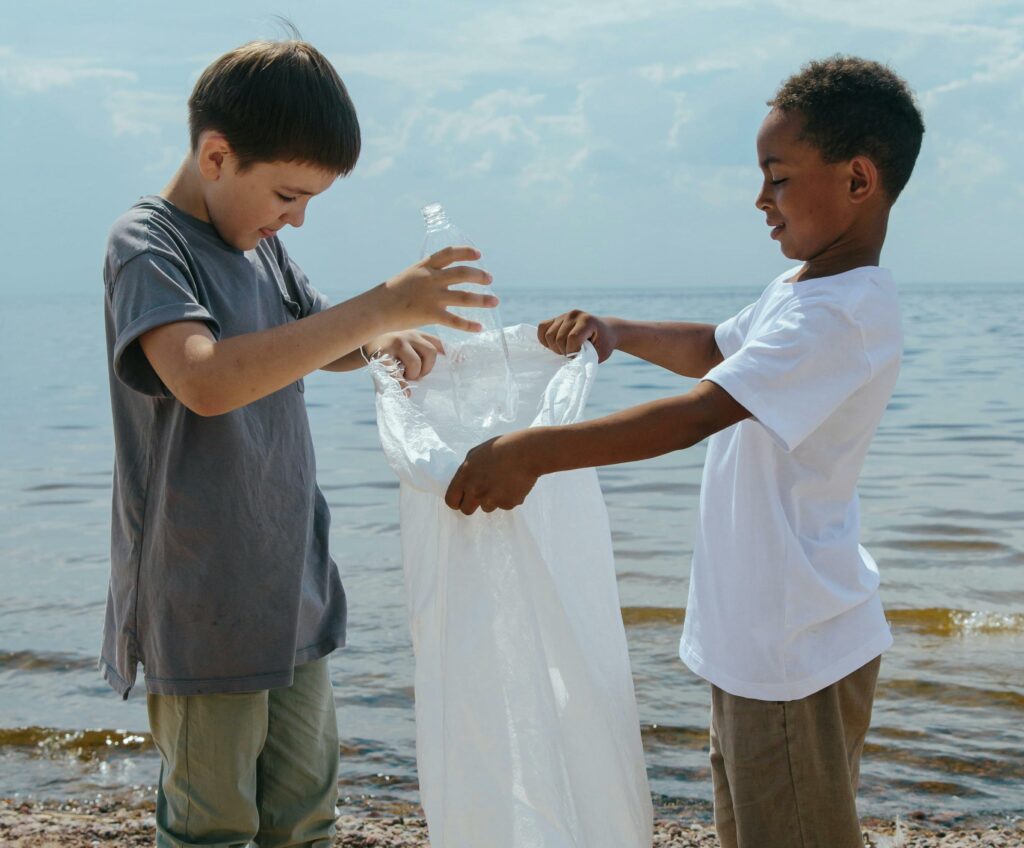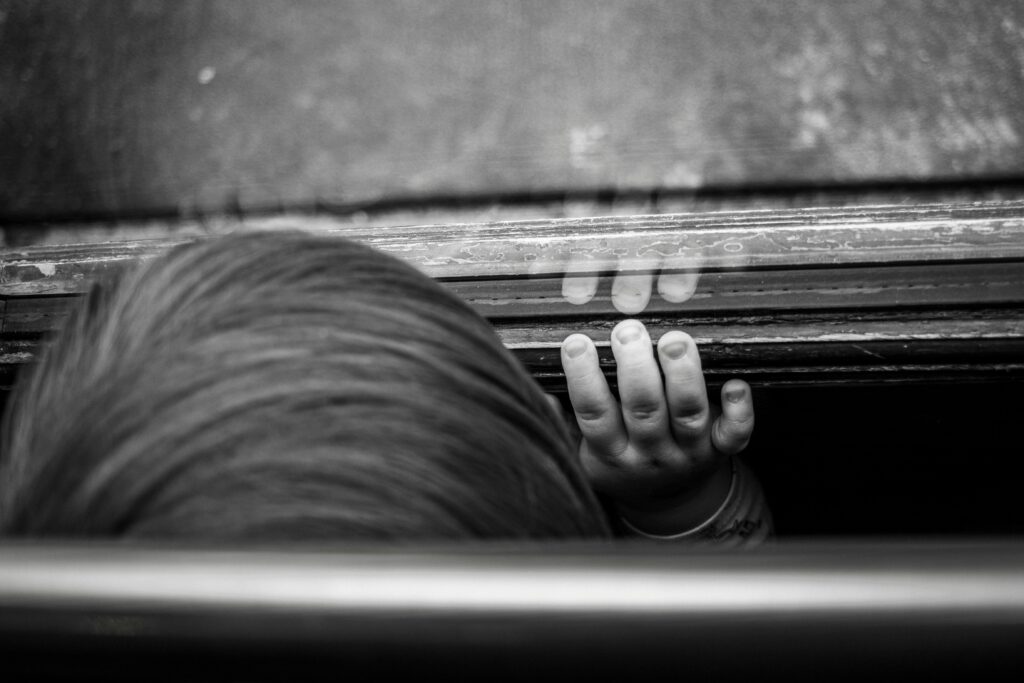It’s the season to get warm and cozy, but that also can mean having a higher fire risk in your home.
To help keep your kids safe (and warm!) this season, you can take some preventative steps to reduce your fire risk and make sure your family is ready if there is a fire in your home.
Top Fire Hazards in Homes
According to the National Fire Protection Association, the top causes of fires in homes are cooking, heating equipment (including space heaters, wood burning stoves, and fireplaces), electrical hazards, smoking, and candles. It’s important to be aware of the risks each of these carry and take the following precautions to prevent an accident.
Cooking
As something we do every day with lots of heat, it’s no surprise that cooking is the top cause of home fires. And when it comes to cooking fires, they are most often caused by a fire on the kitchen stove or by cooking food being left unattended.
With kids at home, fire experts advise creating a kid-free zone that’s three feet around the stove and other areas where food is being cooked. This can prevent your child from having hot oil, food, or water burn them. It also can prevent your kids from causing a fire on accident.
Never leave higher-risk cooking unattended, especially with children around. This includes frying, grilling, broiling, or boiling. If you have to leave the room, turn the heat off. When you are slow-cooking or baking food, remember to check it regularly and don’t leave your house.
If a small fire begins in your kitchen, remember to never use water as it can spread a grease fire and make it worse. Instead, suffocate the fire by turning off the heat and placing a lid on the pan or keeping the oven door shut for a oven fire. Keep a fire extinguisher close by and be ready to use it if a fire starts.
Heating Equipment
Fireplaces, space heaters, furnaces, and wood stoves all can pose a big fire hazard if you don’t take some precautions. First, make the three-foot space surrounding any heat equipment a kid-free zone, and use a baby gate or other barrier to protect small children. Also make sure that space is free of anything flammable, such as pillows, blankets, or curtains.
For fireplaces, make sure there is a sturdy screen to stop sparks from flying into the room. The glass front of fireplaces, including gas fireplaces, can get very hot and burn a child’s skin so make sure you have a safety screen. Have your chimney inspected each year, and check the chimney for any animal nests or blockages that could quickly fill your home with smoke.
For space heaters, make sure they are placed on a solid flat surface. Check the heater’s cords for any cracks or damage and always plug directly into a wall outlet and never an extension cord or power strip. Always turn off your space heater when leaving the room or going to bed.
Electrical Hazards
You don’t need an open flame to start a fire—fires can start from overheated electrical devices, wiring, and outlets, especially when located near flammable objects. Have all electrical work done by a qualified electrician and when buying a home, have it inspected by a qualified private inspector. Make sure you only have one heat-producing appliance, such as a toaster or coffee maker, plugged in an outlet at a time. Never plug major appliances (such as a fridge, washer, or microwave) into an extension cord or power strip.
Also keep an eye out for signs you may have an electrical fire risk and need to call an electrician:
– frequently having fuses blown or tripping circuit breakers
– a tingling feeling near electrical appliances
– warm or discolored outlets or sparks from an outlet
– a burning smell coming from an appliance
– dimming or flickering lights
Smoking
If you smoke, do it outside, where you’re less likely to start a home fire (and expose your children to second-hand smoke). Use a deep, sturdy ashtray to put out your cigarette and keep it away from anything that can burn. Make sure to keep cigarettes, matches, lighters, etc., in a locked cabinet and out of reach of children. Even if you use e-cigarettes, they carry a fire risk when being used or when they are being charged, so use them with caution.
Candles
Never leave a candle burning unattended with children. Always blow it out when you go to sleep or leave the room. Before lighting a candle, make sure it’s set on a sturdy surface that’s at least a foot away from anything that can burn. Candles and lighters can be so tempting to children. So, remember to keep matches and lighters up high and out of reach of children.
Essential Fire Prevention Tips
In addition to the prevention tips listed above, there are some essential steps every household should take.
Never Leave Young Children Unattended
It’s important to note that you also should never leave a child unattended near open flames or other fire hazards. Fires can start suddenly and spread incredibly fast, so it’s also important to never leave small children unattended in your home.
Practice a Family Fire Drill and Talk about Fire Safety
Talk to your children about fire safety and what to do if a fire starts or smoke detector goes off. Every family should have a fire plan that your kids understand and practice twice a year. To learn more about creating a family fire drill, check out this blog post.
Keep a Fire Extinguisher on Hand
Make sure your home has a fire extinguisher near fire risks. Best places to store an extinguisher include your kitchen, furnace, and fire place or space heaters. Be aware that most home fire extinguishers have expiration dates and need to be replaced every 10-12 years.
Install and Maintain Your Smoke Detectors
Make sure your family has a working smoke detector and carbon monoxide detector on every level of your home. Smoke detector batteries should be replaced every 6 months. A great way to remember this is to switch out batteries at Daylight Savings Time. Make sure to hit the test button once a month and replace the smoke detectors every 10 years.


